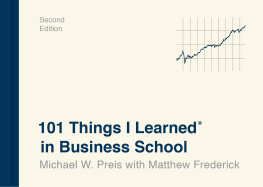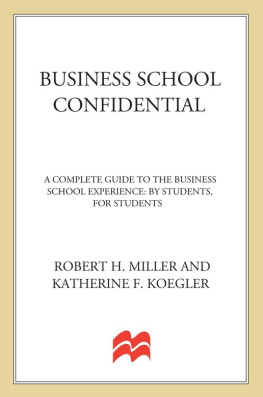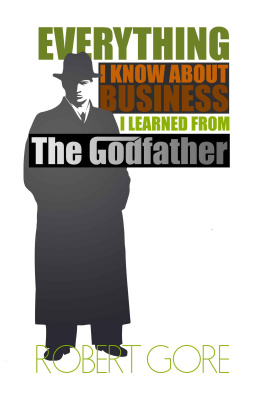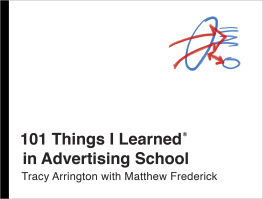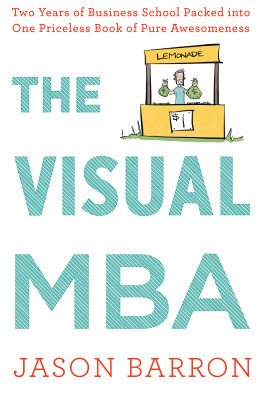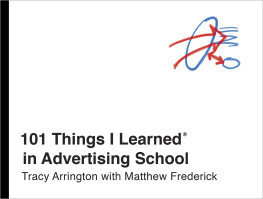Copyright 2010 by Matthew Frederick
All rights reserved. Except as permitted under the U.S. Copyright Act of 1976, no part of this publication may be reproduced, distributed, or transmitted in any form or by any means, or stored in a database or retrieval system, without the prior written permission of the publisher.
Matthew Frederick is the series creator, editor, and illustrator.
This publication is designed to provide competent and reliable information regarding the subject matter covered. However, it is sold with the understanding that the author and publisher are not engaged in rendering legal, financial, or other professional advice. Laws and practices often vary from state to state and if legal or other expert assistance is required, the services of a professional should be sought. The author and publisher specifically disclaim any liability that is incurred from the use or application of the contents of this book.
Grand Central Publishing
Hachette Book Group
237 Park Avenue
New York, NY 10017
Visit our website at www.HachetteBookGroup.com
www.twitter.com/grandcentralpub
First eBook Edition: May 2010
Grand Central Publishing is a division of Hachette Book Group, Inc. The Grand Central Publishing name and logo is a trademark of Hachette Book Group, Inc.
ISBN: 978-0-446-56956-9
Contents
From Michael
To my mother, Elinor B. Preis, for always believing in me
An MBA is one of the most sought after postgraduate degrees, viewed by many as a reliable avenue to a good job and lucrative career. However, while an MBA can help jump-start ones career and may speed professional advancement, it isnt the most essential factor in a successful career.
As often happens, when the majority of people figure out the rules of the game, the game changes. The paradigm of spending an entire career with a single employer or within a single industry is far less common than it once was. Those starting their careers now are likely to work for multiple employers and even in multiple industries over the course of their working lives. Thus, being able to learn quickly, adapt to change, and employ ethical behavior, passion, and savvy thinking in the face of new challenges is crucial.
While business schools provide specific information, skills, and tools for tomorrows business people, they more importantly should instill a desire and proficiency for learning beyond the classroom. Furthermore, there is no single discipline called business; it is, rather, a broad field of endeavor encompassing such diverse disciplines as accounting, communications, economics, finance, leadership, management, marketing, operations, psychology, sociology, and strategy. Those most likely to be successful in business in the long run have the broadest and most open understanding of it.
This book seeks to present lessons in the areas of business that are most likely to be useful to you, whether you are a student in the field, a longstanding businessperson, or someone with an interest in the field. It may be many years before you have the opportunity to apply some of the lessons, but it is my hope, nonetheless, that they will increase your understanding and help you navigate the interesting and challenging avenues of the business world.
Michael W. Preis
From Michael
Thanks to Sal Divita, Geoff Love, Kevin Waspi, Kevin Jackson, Joe Mahoney, Greg Kellar, Abbie Griffin, Bill Brooks.
From Matt
Thanks to Karen Andrews, Alissa Barron, David Blaisdell, Dick Canada, Paul Caulfield, Sorche Fairbank, Joel Garreau, Mary Helen Gillespie, Tracy Martin, Bill McKibben, Jim Monagle, Roni Noland, Camille OGarro, Janet Reid, Kallie Shimek, Flag Tonuzi, Tom Whatley, Rick Wolff, and Luke Wroblewski.
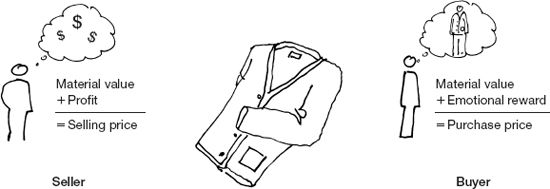
In business transactions, the values assigned to goods, services, or money may be economic, emotional, or both. A business transaction works because each party assigns a higher value to what it receives than what it provides. A customer who buys a sweater for $50 values the sweater more than the $50; likewise, the seller values the $50 more than the sweater.
Value may be assigned on the basis of anticipated future value instead of current value. For example, one might overpay for an ice cream machine because of an expectation that it will generate future income. In this sense, business is sometimes defined as the exchange of current value for future value.

Accounting: the language of business, which organizes and conveys information about transactions in monetary terms
Finance: the management of money and monetary assets
Marketing: the effort to promote a companys products and brands to the intended markets, and to ensure that the right products are for sale at the right prices in the right places
Production and Operations: the coordination and overseeing of activities such as manufacturing and provision of services
Organizational Behavior: the study of how people act and interact in work settings; may include motivational strategies, corporate organization and culture, leadership models, group psychology, and conflict resolution
Economics: a social science pertaining to business and financial activity

Business philosophy is a term used within the field of business to refer to the values or approach of a particular company (e.g., ABC Widgets business philosophy is to put the customer first) or the dynamics of a market segment (the widget industry demands a permanently flexible business philosophy).
The philosophy of business is concerned with broader meanings of business as a human endeavor, including whether business is fundamentally an economic or social phenomenon, the moral obligations of business to society, the degree to which government should regulate businesses, and the differences between business operations and meanings in capitalist and socialist societies.
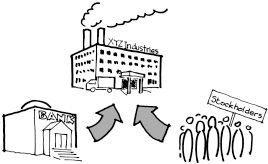
Equity capital is obtained by selling a portion of the ownership of a business to investors. It is considered permanent capital because the property or funding provided by the investors never has to be paid back. However, the investorscalled equity owners or equity partnersmay sell their ownership to other parties. Stocks are a form of equity ownership.
Debt capital is obtained by borrowing money. It is temporary in nature because the money must be repaid to the lenders. Bonds and bank loans are two sources of debt capital.

Intellectual capital is proprietary information and in-house knowledge of technologies, materials, processes, and markets useful to an organization.
Next page

